WWW: Good analysis of theory and some effective use of seminology
LR: Rewrite p2 with examples. Develop intro and gatekeeping and misinformation points. Include case study material more (e.g Arab Spring).
Intro:
New and digital media have had a major impact over the audience of the 21st century. We are now digitally surrounded causing traditional media going into decline. It can be argued that audiences are negatively and positively adapting to the change of new and digital media.
P2:
In modern societies, audiences can now 'create' their own news with the help of new and digital media. User generated content (UGC) gives audiences the power to create news. Recently, audiences are now consumers and now are becoming citizen journalists which means that if they find out something interesting they can either upload it to YouTube or tweet. An example of this, "My Tram Experience", where a woman was being racist on a tram, a citizen recorded it, uploaded it to YouTube and it eventually ended up on the news and the woman was arrested. Citizen journalism helps ordinary people broadcast a story, instead of relying on traditional news. Also, the change of the news allowsn pluralism and empowerment, as it gives young people, working class (etc) an opportunity to voice their opinion. People are no longer 'passive' receivers, they are turning to 'blogosphere' in order to be heard.
There are fewer gatekeepers because audiences no longer need someone to publish it for them, people can now publish information on their own accord.
Wednesday, 27 March 2013
Tuesday, 26 February 2013
Tuesday, 19 February 2013
#12
Consider theoretical perspectives in relation to the impact of new/ digital media in your case study. E.g. Representation of certain groups as a result of changes, Marxism & Hegemony, Liberal Pluralism, colonialism, audience theories etc.
The institutions are owned by the ruling class (e.g Mark Zuckerberg) and these institutions are used to indoctrinate the masses into believing capitalism is good.
Gramsci was a Italian Marxist and disagreed with the Marxist view that the ruling class maintained their status and power. So he came up with a concept called Hegemony. This was to describe how the ruling class dominate other classes by manipulating the culture of society in order to present their view as being 'common sense' or 'just the way things are'
#11
Are there any cross-cultural factors and /or effects of globalisation involved in the impact of new technology on your case study? E.g. the internet has been said to be ‘globalising culture’ through its promotion of the English language.
Globalisation is where regional economies, societies, and cultures are being integrated through a network of communication, transportation, and trade. Facebook has become the main networks for social media, not only for advertising and social advantages, but also for global news. The earthquake in Virginia in August of 2011 is an excellent example. Almost the second after it was over, Facebook exploded about it; within the hour everyone in the northeastern United States knew about it; within two hours the whole United States knew; and within four hours, the whole world knew about it. All of this was because of Facebook, the new front-runner in social media and globalisation.
This is why advertisers use sites like Facebook to get a range of different audiences to buy whatever they are advertising. Twitter is also an effective way to advertise and promote businesses, depending on your followers. Celebrities use this especially to promote their new music videos and so on.
#10
What issues may there be regarding media effects and /or regulation/ censorship as a result of changes due to new and digital media?
Media regulation is the control or guidance of mass media by governments and other bodies.
Media effects: affect how their audiences think and behave.
The issues due to the change of new and digital media can be that audiences may not feel safe on social media sites because they cannot freely express their opinions. For example, in Greenford High School, students have been in trouble for posting their opinions on Twitter/ Facebook and this is an issue because why should you get into trouble for saying something harmless on a SOCIAL MEDIA SITE (links with censorship). Isn't that what social media is all about? So the issues with regulation might be a problem with audiences as they can't say what they really feel without getting into trouble. However, this could affect how audiences behave and think (media effects) as they are in fear of getting punished.
With Media regulation, the audience may respond negatively because they go on social media for escapism and to be controlled on the internet and to be controlled in reality will create frustration.
The issues due to the change of new and digital media can be that audiences may not feel safe on social media sites because they cannot freely express their opinions. For example, in Greenford High School, students have been in trouble for posting their opinions on Twitter/ Facebook and this is an issue because why should you get into trouble for saying something harmless on a SOCIAL MEDIA SITE (links with censorship). Isn't that what social media is all about? So the issues with regulation might be a problem with audiences as they can't say what they really feel without getting into trouble. However, this could affect how audiences behave and think (media effects) as they are in fear of getting punished.
With Media regulation, the audience may respond negatively because they go on social media for escapism and to be controlled on the internet and to be controlled in reality will create frustration.
#9
Consider the effects so far, and possible effects in the future, on media institutions involved in your case study (media production).
Since social media has become overwhelmingly popular, the effects have been that users have been significantly dependent on internet from doing online shopping to listening to music online also. So the effects in the future could be that everything will be virtual and the traditional way of doing something will be somewhat non-existent. But with social media, for example Facebook, users will be using this more often to communicate with others instead of calling and nowadays people are able to video call others via Facebook/Skype so different ways of communicating are also available. With social networks like Twitter, news will easily be accessible because people will be talking about it.
Friday, 15 February 2013
#8
What are the political and social implications of the new technologies and the methods of their consumption? E.g. moral panics etc?
Social media was the main factor of the UK riots in August 2011, as people used it to organise meet-ups and locations to riot next. Twitter and BBM was the main the social networks used because it was the fastest way to spread meet-ups and so on. The social implication of this was that it created moral panics because audience was being told that BBM and Twitter was the prime networks creating the chaos and how the police was trying to shut it down but they couldn't hack into BBM especially.
Case study #7
What concerns/ considerations are there (if any) for the media institutions involved in your case study as a result of the impact of new and digital media? (e.g. deskilling or multi-skilling of the workforce/ decline in workforce etc)
The concerns/considerations with social media relates more to the news. Social media is constantly getting updated with news and current topics so users find out information a lot quicker. But the concern would be a decline in the workforce because newspapers are losing money because consumers are finding free options in getting news, also, journalists losing their jobs due to citizen journalism and the rise of UGC.
The graph shows the impact that UGC, consumers and creators from 2008 to 2013 and this shows that industries such as newspapers haven't got much of a chance because the UGC, creators and consumers are still increasing and the more they increase the more newspapers decrease. The other concern would be that users are going to be reliant on social media...
Case Study #6
How have the audience responded to the changes? Is there more customer choice? Is there evidence of a more pluralistic model? What evidence do you have to support this?
Social media has made accessing information, communication and expressing feelings a lot easier for audiences. For example, Twitter enables users to send and read 140 characters, known as tweets, so this is a quick and effective way to get a point across. With Twitter, having 'followers' is important in order to quickly spread rumours or information. UGC is the main feature to social networking because it allows audience to use social media in a way that suits them best.. Many people use social media to have their '15 minutes of fame' because in the 21st century, a few ways to become famous all you need is a YouTube account.
So audiences are using the changes to meet their advantages. For example: the latest craze that's circulating social media is the 'Harlem Shake' where a group of university students 'remixed' the original Harlem Shake dance and put it on YouTube. Ever since then there has been other people doing their own versions of this dance which is attracting a lot of people. The use of Twitter and Facebook has helped these types of videos and gained audiences.
Not all social media is pluralistic as some Eastern countries for example, North Korea and China they have a dominant ideology, they only allow people to go on certain websites which the government feels won't threaten their country. In China, they no longer have Google as they have criticised their censorship and this has been named "The Great Firewall of China". So in these Eastern countries, there isn't any customer choice as they are unable to access social media such as Facebook and Twitter. By contrast, in the Western countries, for example: United Kingdom, they have a more of pluralistic model on social media as they are allowed to use any social media website, post several blogs and tweet so having this freedom on the internet means customers have more choice in what they write on these sites... but only to an extent.
Marxists would say that there isn't any evidence of a pluralistic model, they would argue that its hegemony, where everything is to suppress the working class and maintain the hierarchy.
Even though social networks are designed to interact with others and write how you feel etc, there are still monitors on these sites which can result in people getting arrested if there are offensive comments. For example: Tom Daley. So are customers really free to express themselves?
So audiences are using the changes to meet their advantages. For example: the latest craze that's circulating social media is the 'Harlem Shake' where a group of university students 'remixed' the original Harlem Shake dance and put it on YouTube. Ever since then there has been other people doing their own versions of this dance which is attracting a lot of people. The use of Twitter and Facebook has helped these types of videos and gained audiences.
Not all social media is pluralistic as some Eastern countries for example, North Korea and China they have a dominant ideology, they only allow people to go on certain websites which the government feels won't threaten their country. In China, they no longer have Google as they have criticised their censorship and this has been named "The Great Firewall of China". So in these Eastern countries, there isn't any customer choice as they are unable to access social media such as Facebook and Twitter. By contrast, in the Western countries, for example: United Kingdom, they have a more of pluralistic model on social media as they are allowed to use any social media website, post several blogs and tweet so having this freedom on the internet means customers have more choice in what they write on these sites... but only to an extent.
Marxists would say that there isn't any evidence of a pluralistic model, they would argue that its hegemony, where everything is to suppress the working class and maintain the hierarchy.
Even though social networks are designed to interact with others and write how you feel etc, there are still monitors on these sites which can result in people getting arrested if there are offensive comments. For example: Tom Daley. So are customers really free to express themselves?
Friday, 8 February 2013
Case Study #5
Who are the primary target audience now and has this changed? Who was it before and how do you know?
Different social media sites appeal to different age groups, so this suggests that primary target audiences will differ.
- 18-24 year old = primary audience
- 18-24's will use it more than any other groups of people because they will most likely have a mobile version of Twitter, so they can tweet on the go.
- The audience hasn't really changed, Twitter is used by everyone but mainly used with 18-24

- 25-34 year old = primary audience
- The target audience has changed from 0-17 18-24 because they have moved to Twitter
- 25-34 year old's are now using it more because they reunite with old friends etc...
This infographic explains the statistics with the biggest social media sites right now:

Case study #4
Is the size of the audience any different now than before the impact of new and digital media (or has the pattern of usage changed)?
This info-graphic displays that people aged 0-17 and 35-44 in 2008 are more likely to use social media on sites like Bebo, Myspace and FriendFeed. However, since it's 2013 times have changed and on top of table is Twitter and Facebook which appeals more to 16-24 year olds.
MySpace was the most visited social network site in 2005-2008 but it got overtaken by Facebook in April 2008.
Facebook took over Myspace and has been the most dominant social networking site since 2008. September 2012, Facebook had announced that they have reached 1 billion active users. In 2010, this was the Facebook's users by age:
Now there is some competition with Facebook and Twitter. Even though Facebook is the most used social networking site, Twitter is slowly creeping behind. Twitter started in 2006 and rapidly grew in 2012 with over 500 million users.
Social network demographics (2012):

Social media was once considered a trend and has now become the way of life. In 2012, there were many events that happened via social media. For example, in March Kony 2012 brought up a lot of views and raise awareness about the warzone in Uganda. They reached 87 million views on YouTube and everyone around the world knew about this. This shows social media has a huge impact on spreading news, it's easy and cheap to do... most of the time it's free. The table below shows the impact of social media

MySpace was the most visited social network site in 2005-2008 but it got overtaken by Facebook in April 2008.
Facebook took over Myspace and has been the most dominant social networking site since 2008. September 2012, Facebook had announced that they have reached 1 billion active users. In 2010, this was the Facebook's users by age:

Now there is some competition with Facebook and Twitter. Even though Facebook is the most used social networking site, Twitter is slowly creeping behind. Twitter started in 2006 and rapidly grew in 2012 with over 500 million users.

Social network demographics (2012):


Social media was once considered a trend and has now become the way of life. In 2012, there were many events that happened via social media. For example, in March Kony 2012 brought up a lot of views and raise awareness about the warzone in Uganda. They reached 87 million views on YouTube and everyone around the world knew about this. This shows social media has a huge impact on spreading news, it's easy and cheap to do... most of the time it's free. The table below shows the impact of social media

Tuesday, 5 February 2013
Case Study - #2
Has new and digital media had an impact upon ownership and control of the media institution(s) involved in your case study area? Explain in detail any impact and what exactly has changed.

Social media/networks play a big part in the impact of ownership and control of media institutions. Firstly, the use of UGC is a factor as it has created audience to become producers as well as consumers. UGC is User generated content, so this refers to citizen journalism so audience can now use sites like YouTube to give that firsthand experience. The use of UGC is slowly putting journalism out of the business. Similarly with social sites like Twitter, Twitter is known for its 24hr rolling news where users constantly update things that may be happening right now, right there. Its a very easy way to get news around, so sites like this are slowly putting newspapers out of business. Audiences are now reliant on social media for source of information, also people now use online to communicate more.
Social media can be dangerous as it creates 'internet warriors' and 'twitter famous' people, these people rely on the sites like Twitter, Facebook, YouTube too often. To be labelled as a 'internet warrior' means that an individual to be brave behind the screen and constantly insult people. Twitter famous relates to the amount of followers you have and how good your tweets are, in today's society, many people inspire to be twitter famous as they actually believe it will get them far in life. To conclude, social networks can be very addictive.
What impact has there been on the way in which the audience now consume the media products/ texts involved in your case study? How does it differ from what went before? Consider (SHEP)
There has been a tremendous impact on the way the audience now consume media products. People now turn to YouTube in hopes of becoming a star because it's quick way to get recognition and become famous. An example of a YouTube sensation is Justin Bieber, he was found on YouTube by Usher and was quickly signed by him and currently Justin Bieber is making millions and he's only 19. So sites like YouTube to make dreams reality and audiences are now consuming media differently as they are more likely to get involved in media without even knowing. Using sites like Twitter, they are informing everyone with what they are doing but if something happens, for example: a fight with Chris Brown and Frank Ocean many people will take to Twitter to discuss and voice their opinions. This is different to 5 years ago, where audiences didnt use social networks so much, MSN was the main source of communication but now that has died and Microsoft have now bought Skype.
Economically, audience have consumed media texts differently because everything is available online for example, people can now do shopping online, online banking etc... so money has been saved by using the internet but regarding social media, everything is free and audiences cant resist freebies. An example of a freebie via social networks is the news, where they can get 24hr rolling news, also games are free on social media etc.

Friday, 1 February 2013
Lessons the tech world learned in 2012
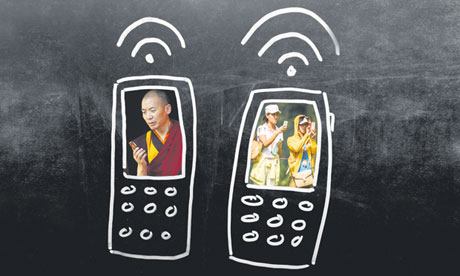
What is it about?
This article gives the reader 9 lessons that the 'tech world' learned in 2012.
LESSON 2 Valuing technology companies remains an inexact science,
LESSON 3 Raspberries come in unexpected flavours,
LESSON 4 The iPad isn't a magic bullet for publishers after all
LESSON 5 Why Facebook should not have a seat at the United Nations
LESSON 6 Book publishers have finally realised that they are the main course in Amazon's lunch menuLESSON 5 Why Facebook should not have a seat at the United Nations
LESSON 7 Just because governance of the internet is too important to be left to the United Nations doesn't mean that it doesn't need governance
LESSON 8 If you want privacy keep off the net. Or at least encrypt your stuff
LESSON 9 The future's mobile and that's not necessarily good news
What do I think?
I think there are a lot of lessons
Why power has two meanings on the internet
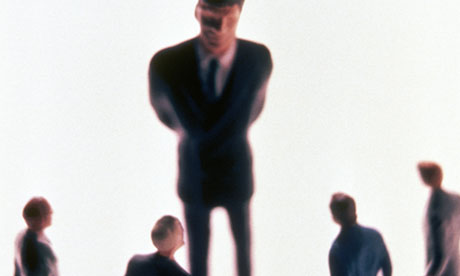
What is it about?
- Back in 1906, an Italian engineer turned economist named Vilfredo Pareto made a startling discovery: 80% of the land in Italy was owned by 20% of the population.
- In the 1940s, an American engineer named Joseph Juran noticed that 80% of the quality problems in industrial mass-production systems seemed to come from 20% of the possible causes.
- Pareto Principle was really just a special case of a more general phenomenon, namely the fact that in many areas of life there is no such thing as a typical or average case.
- we see the distribution of which Pareto's Principle is a special example: a small number of people/sites/words/etc account for most of the action, with a "long tail" getting very little of it.
- Instead of most websites having an "average" number of inbound links, a very small number of sites (the Googles, Facebooks and Amazons of this world) have colossal numbers of links, while millions of sites have to make do with only a few.
- Mathematicians call this kind of pattern a "power law" distribution
http://www.guardian.co.uk/technology/2013/jan/06/power-laws-internet-john-naughton
Case Study
Write here what your case study will involve. Remember it should be about the impact of new and digital media on.....
Explain why you have chosen this topic and why you think this will be a rich area for study.
I have chosen this topic because it's very relevant to the 21st century. Social media is everywhere and I think it's only right to study it. Social networks such as Twitter and Facebook have changed our lives dramatically as we are almost dependant on these sites. There is a lot to talk about regarding social networking, like UGC, the fact that individuals play games on social sites instead of actual games sites, people communicate more on sites then on the phone. Also these sites are easy accessible. So these are the reasons why I find it important and a rich area to study.
Identify at least three media texts/ products that you will use as your primary sources of evidence to demonstrate the impact of new and digital media in your topic area
Twitter Facebook YouTube Instagram Google
Explain why you have chosen this topic and why you think this will be a rich area for study.
I have chosen this topic because it's very relevant to the 21st century. Social media is everywhere and I think it's only right to study it. Social networks such as Twitter and Facebook have changed our lives dramatically as we are almost dependant on these sites. There is a lot to talk about regarding social networking, like UGC, the fact that individuals play games on social sites instead of actual games sites, people communicate more on sites then on the phone. Also these sites are easy accessible. So these are the reasons why I find it important and a rich area to study.
Identify at least three media texts/ products that you will use as your primary sources of evidence to demonstrate the impact of new and digital media in your topic area
Twitter Facebook YouTube Instagram Google
Black Mirror
http://www.guardian.co.uk/technology/2011/dec/01/charlie-brooker-dark-side-gadget-addiction-black-mirror
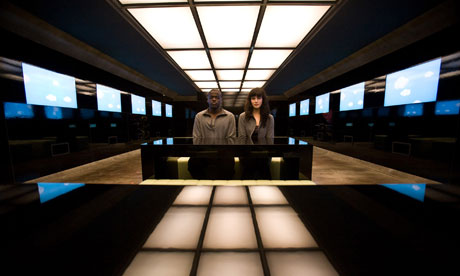
Black Mirror: What is the message?

Black Mirror: What is the message?
Black Mirror has many messages but it definitely shows how society is being based through desensitisation of content. Nowadays there is less privacy and less censorship so that means that audience are loosing their values and their ability to interact with others through sites such as Twitter. Using Twitter, means that people can use it to spread information quickly but this also lacks censorship because as soon as something is on the internet it can be spread instantly. We are now living in adystopia due to technology instead of utopia. New and digital media is now taking over traditional media through the use of smart phones, interactivity of social networking and UGC. Moreover it presents political affairs in a satire way to show the debasing of society who only watched the events that mock people or entertain themselves. It also shows the strong belief that society has on Rolling 24 hour news to present the real news , as internet news could be untrue and false rumours therefore many rely on broadcasting services to present the truth.
Wednesday, 16 January 2013
Will the internet end up controlled by big business and politicians?
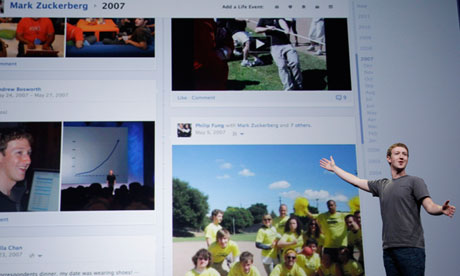
What is it about?
- Its about controlling the internet ever since the Internet became popular in 1993.
- WCIT-12 was nevertheless a significant event in the evolution of the internet because it demonstrated that the war to control the network not only goes on, but is increasing in intensity.
- The fact that Facebook brought Instagram and they had updated the T&C's and said that they can use people's pictures without their consent links to monetizing. This means that they some what 'own' users relates to control
- "There are probably 200 million people now who think that Facebook is the internet."
What do I think?
I think that the internet is going to take over everything we do, its happening already. Especially how people think Facebook is the internet. It just shows how dependant people are and at the end of the day, people like Zuckerberg only concentrate about updating their site in order to make money. The main objective is to be the most controlling network/business.
http://www.guardian.co.uk/commentisfree/2012/dec/23/internet-will-oligarchs-control-it
http://www.guardian.co.uk/commentisfree/2012/dec/23/internet-will-oligarchs-control-it
Wednesday, 9 January 2013
Twitter active users pass 200 million
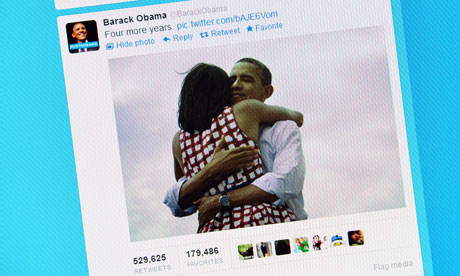
What is it about?
Twitter now has more than 200 million active users around the world, with some 10 million of those in the UK underlining its rapid growth as a social media tool. It has shot up from 140 million in May, with major events such as the presidential election in the US and the Olympics converting more people from passive to active users.
What do I think?
Twitter is a surprisingly a very addictive site, as all you do is post up the most irrelevant stuff about what you're thinking, what you've heard or what you're doing. But I'm not surprised that they have reached passed 200 million users
BBC and ITV apologise to Lord McAlpine for sex abuse allegations
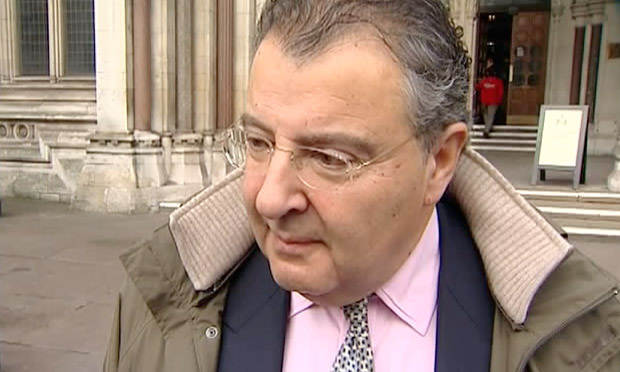
What is it about?
The BBC and ITV have apologised to Lord McAlpine at the high court for "disastrously" and falsely linking him to allegations of child sex abuse.The BBC and ITV have already agreed to pay the Tory peer damages of £185,000 and £125,000 plus legal costs respectively. McAlpine was not in court for a joint statement that concluded his action against the BBC and ITV.
What do I think?
I think that it was unfair that Mr. McAlpine had got accused of a child sex abuse, they made him look like the bad guy when he wasn't, and instead of McAlpine being embarrassed for being caught out, the BBC and ITV got embarrassed for wrongly accusing... Why did they have to be so quick to accuse?
http://www.guardian.co.uk/media/2012/dec/18/bbc-itv-apologise-lord-mcalpine
http://www.guardian.co.uk/media/2012/dec/18/bbc-itv-apologise-lord-mcalpine
Print in 2013: Newspapers cut costs and seek tablets of salvation
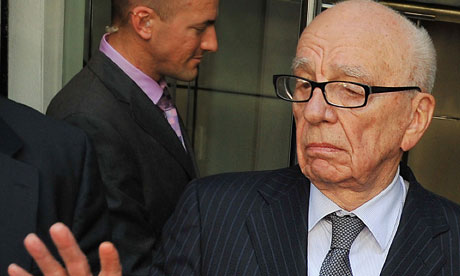
What is this about?
This is about the newspapers facing a decline in 2013. The fact that there is an increase in tablets means that newspapers need to find a way of monetizing the tablets in order to survive. All newspapers are depending on tablets for survival but no one would want to pay for a news when they can get it online. Newspapers have been cutting 68 journalists as they are losing money. :(
What do I think?
I think that the newspapers are going to decline dramatically because everyone's online, but the people online dont want to pay for news which is available for free. So newspapers are having a bit of hard time finding the balance, unlucky that.
http://www.guardian.co.uk/media/2012/dec/16/print-2013-newpapers-cut-costs
The Daily closes shop: why the news app was doomed from the start
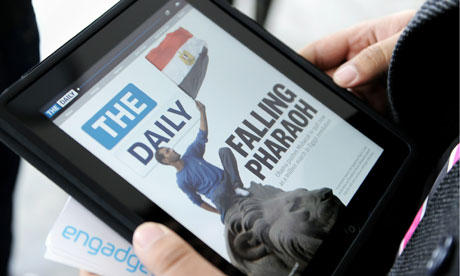
What is it about?
This article is about "The Daily", which is Murdoch's invention of a newspaper (that you have to pay for) and is only available on iPads. However, Murdoch thought that he would sell "millions", matter of fact he only had 100,000 subscribers when he thought he would reach at least 750,000. Then "The Daily" moved to other tablets like the Android and even devices like the Kindle to reach a 'wider audience'. But Jeff Jarvis, the writer of this article, says that "The Daily" was doomed from the start because people wouldn't want to pay for news that they can access for FREE somewhere else. So Murdoch scraped "The Daily" because it was a total fail.
What do I think?
I think that Murdoch has too much money as it is, he owns practically everything and I'm glad that this plan failed because he's just being greedy. I find it funny how he is trying to be innovative and unique by only making this available on tablets but no one is really going to pay for news at the end of the day. People can access it from online, newspapers on the train and even television which is shown at different times of the day. This idea was planned to fail, sorry Murdoch.
http://www.guardian.co.uk/commentisfree/2012/dec/03/the-daily-closes-app-doomed-from-start
Subscribe to:
Comments (Atom)



